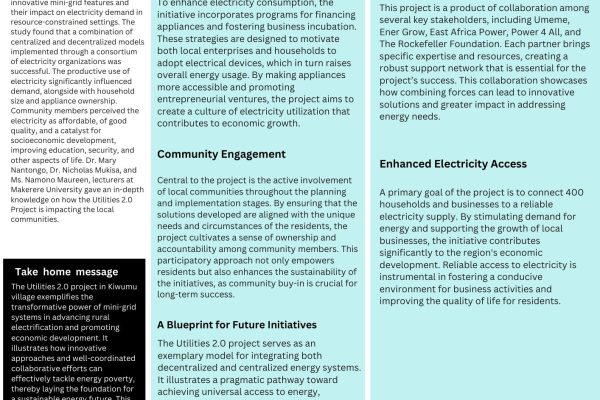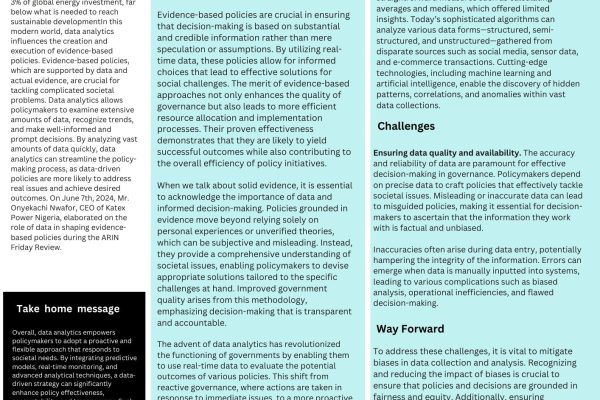Introduction
Climate change poses a myriad of challenges to the water sector in Kenya. In response, there is an emphasis on embracing green technologies like solar pumping, gravity schemes, rainwater harvesting, water for livelihoods, and mangrove restoration. This however can only be achieved through government partnership with the private sector and financing of the Kenya Water Sector Trust Fund under the Ministry of Water Sanitation and Irrigation. On July 5th, 2024, Ms. Ann Nabangala Obae, ARIN Fellow and Principal Programme Officer Climate Change Water Sector Trust Fund, gave in-depth knowledge and insights on the above topic during the ARIN Friday Review.
Key Messages
Enhancing the Harvesting and Storage of Water Resources
Climate change is reshaping the patterns of precipitation across various regions, significantly impacting the availability of vital water resources. To combat this issue, the adoption of innovative green technologies presents an opportunity for communities to effectively harvest and store excess water during periods of flooding. This stored water can be utilized during times of drought, ultimately enhancing the resilience of communities to extreme weather events and reducing the impact of floods on local populations.
Increasing Forest Coverage
One impactful strategy for improving water management is the investment in climate-smart agricultural practices and clean cooking energy sources. These initiatives significantly contribute to the recharge of groundwater and the restoration of vegetation. By introducing sustainable agricultural techniques, such as agroforestry—which integrates trees and shrubs into farm landscapes—soil health is improved, erosion is minimized, and water infiltration rates are enhanced. These measures collectively work towards replenishing groundwater resources, ensuring a consistent supply of water during drier periods.
Protecting Water Sources
The development and management of water sources are critical for maintaining both quality and quantity. By implementing strategies to protect these sources, Kenya can reduce conflicts stemming from the intersection of climate issues and water scarcity. Enhancing water quality through effective treatment methods and maintaining water levels can foster a sustainable supply, promoting socio-economic development in the face of an ever-evolving climate landscape. Such proactive measures are essential for safeguarding water resources not only for the current population but also for generations to come.
Addressing Depleting Water Resources
The challenge of dwindling water resources requires a multifaceted approach that brings together conservation efforts, improvements in infrastructure, enhanced efficiency, and strong governance frameworks. By promoting international collaboration among countries facing similar challenges, raising public awareness about water issues, and establishing public-private partnerships, the Kenyan government can tackle the multifaceted realities of water scarcity. These combined efforts are aimed at developing sustainable water management strategies that benefit all.
Overcoming Limited Capacity Among Implementing Partners
To effectively combat water shortages in Kenya, it is crucial to enhance the capabilities of implementing partners involved in water management initiatives. Addressing the limitations faced by these organizations can significantly boost their effectiveness. Offering tailored technical assistance and mentorship programs will enable these partners to better plan, design, implement, and monitor their projects. Such support is essential in equipping them with the skills and knowledge needed to tackle challenges related to green water financing and resource management.
Conclusion
The path to greening water sector financing in Kenya lies in the strategic allocation of resources aimed at effectively addressing the multifaceted impacts of climate change. By investing in resilient infrastructure that can withstand extreme weather conditions, promoting practices that conserve water, and integrating nature-based solutions into the management of water resources, Kenya aspires to enhance the sustainability and reliability of its water sector. This comprehensive approach not only addresses present challenges but also secures the availability of water resources for future generations, fostering a healthier and more sustainable environment for all.




